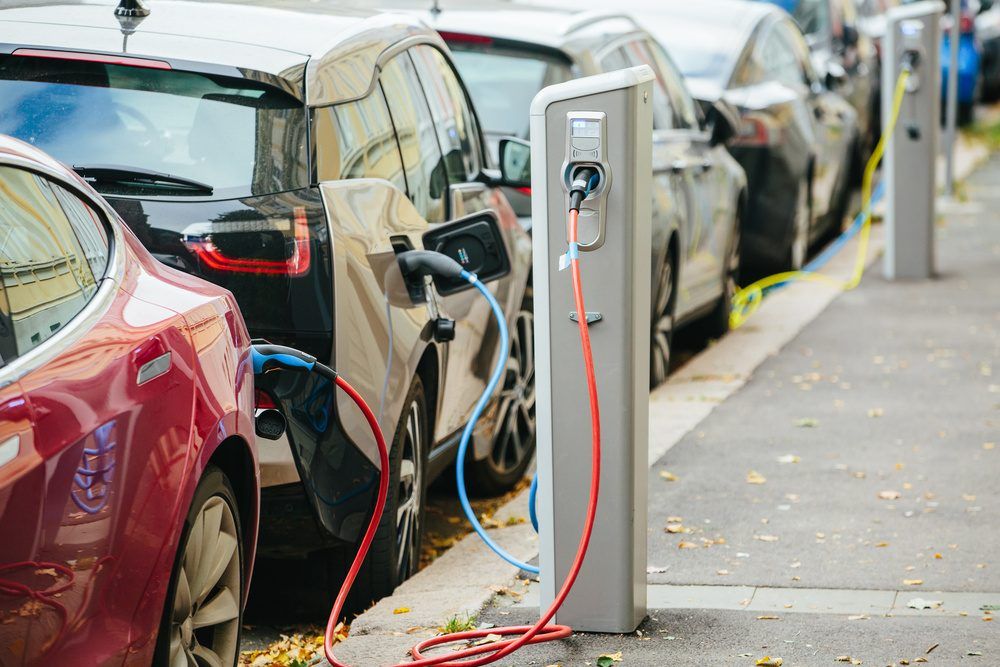>
Blog>
Average Used Car Repair Costs For UK DriversAverage Used Car Repair Costs For UK Drivers
The average used car driver spends around £1,300 annually on car repairs and maintenance.
That includes petrol — no surprise there — but also repairs and breakdowns. Most people pay between £30 and £35 on monthly trips to the mechanic and about £65 and £68 for fuel, although this has now risen by 20% since the cost of living crisis.
Of course, those are just averages, and repairs can be expensive for an unlucky few. Unexpected fixes cost much more, and the more upscale the car brand, the more it costs to fix.
Luckily, you can make surprise bills less likely. There are car repair finance options like ours that you can turn to, but regular upkeep of your used car is the best way forward.
In this blog, we’re looking at the average car repair costs and how to keep your used car in excellent condition. Let’s dive in.
Average used repair costs per car brand
When something goes wrong with your car, it can be good to check what the typical prices are for fixing problems on your specific make and model. This helps both with budgeting, and ensuring you’re not getting overcharged when visiting a garage.
Below are some average car repair costs, listed by brand. Bookmark this page so you don’t lose them!
Engine blown - replacement engine
- Ford, Vauxhall, Mazda, Skoda: £4,500 - £6,000
- Volvo, VW, SEAT, Toyota: £5,000 - £7,000
- BMW, Audi, Mercedes, Range Rover: £9,000 - £13,000
Suspension damage - replacing a spring and strut
- Ford, Vauxhall, Mazda, Skoda: £180 - £300
- Volvo, VW, SEAT, Toyota: £250 - £340
- BMW, Audi, Mercedes, Range Rover: £300 - £520
Replacement battery
- Ford, Vauxhall, Mazda, Skoda: £60 - £100
- Volvo, VW, SEAT, Toyota: £80 - £140
- BMW, Audi, Mercedes, Range Rover: £90 - £300
EGR valve replacement/refresh costs
- Ford, Vauxhall, Mazda, Skoda: £180 - £250
- Volvo, VW, SEAT, Toyota: £200 - £280
- BMW, Audi, Mercedes, Range Rover: £300 - £500
Turbo Replacement
- Ford, Vauxhall, Mazda, Skoda: £400 - £700
- Volvo, VW, SEAT, Toyota: £550 - £800
- BMW, Audi, Mercedes, Range Rover: £700 - £2,000
Is it cheaper to repair older cars?
Yes, in many cases, older cars are cheaper to repair. This is because new vehicles require expensive main dealer tools and data, whereas securing parts for older models is easy.
However, if your car is very old or out of production, it becomes difficult to find parts for it again. This, therefore, drives up the prices.
So, if the car is old enough that an independent mechanic has easy access to the parts and workshop guides, it’ll be cheaper. But if the car is so old that parts aren’t obtainable, it will be an expensive fix. Weigh these factors up when looking up average car repair costs.

One of the main reasons older cars can be fixed cheaper than new ones is that most main dealer garages charge upwards of £100 per hour. This means a simple oil change can be £100 before parts!
Are used cars covered by warranty?
Yes, some used cars are covered by warranties. If your used car still has some time left on the original manufacturer's warranty, you'll still be on their standard maintenance packages and cover schedule.
However, the warranty has already expired for most used car owners, so you have to pay for each service and part individually.
Do I have the right to return a used car?
Yes, you have the right to return a used car. Under the Consumer Rights Act 2015, you can return something faulty and secure a full refund within 30 days of purchase.
The Act states the car must be “as described,” “fit for purpose,” and “satisfactory quality.” But don’t think you can return it for a new model. The Act takes into account the used car’s age and mileage!
Where is the best place to buy a used car?
The safest way to buy a used car is from a dealer. This is because you can buy from approved used schemes with 30-day return guarantees. But check the small print, as sometimes you’ll have to exchange it for another car — not a refund.
Options and conditions vary between different retailers. So, always check before buying.
When is it not worth it to repair a used car?
Buying a new car is best when your car repair costs exceed its overall value. This happens after years of use or when the car is so old that you can’t easily find parts to replace it.
You may also want to consider a new car when your car is written off or needs a significant expensive or large repair.
However, there’s no rule for when you should trade in a used car. It also depends on your personal attachment to the car and financial situation.
6 ways to save money on car maintenance costs
1. Keep up with the manufacturer’s maintenance schedule
Even if your used car is out of warranty, the manufacturer’s recommended service schedule is worth sticking to. Too many drivers try to save money on maintenance by delaying periodic service visits.
New car or used, experts say that any savings you gain are short-term at best. Waiting too long between mechanic visits lets minor problems escalate into big ones. And with a used car, there naturally tend to be more small problems.
2. Save Money By Keeping Your Car Clean
Ensuring your used car’s body and underside are cleaned regularly will help keep grime and grit from accumulating around moving parts. Regular cleanings will also minimise scratches and damage to your paint job, glass, and mirrors.
Studies have shown that British drivers spend around £60 a year taking their car into the car wash.
Pro Tip: The average car’s lifespan is seven to eight years. If you wash your car at home, you could save £800 from your maintenance costs.
3. Drive your used car carefully
Getting more life out of your used car could be as easy as treating it with more care. Your brakes, tyres, clutch and transmission will last longer, and you won’t stress your systems and components to the max.
Start with simple changes. For example, don’t press your foot down on the clutch after changing gears. If you do, the clutch won’t fully re-engage, which could cause premature wear to the clutch plates and unnecessary throw-out bearing wear over time that will cause major damage to your transmission, which will be expensive to fix.
Another thing you can do is steer clear of bumps and potholes. Your car’s suspension, underside, and tyres can all be damaged by flying over imperfect roads at high speed. So, take it slow.
You should also treat the brakes with care. Easing on the brakes will keep discs and brake pads from wearing out before their normal lifespan expires. If you brake hard constantly, it creates more friction and wears down component materials faster.
4. Make your next car electric
Electric vehicles are increasing in popularity, so there’s also a growing market for used EVs, and lower repair costs are part of the attraction.
Alongside being more sustainable, EVs are rightly hailed for being cheaper to maintain. Their motors contain fewer moving parts, and perhaps most importantly, charging an electric vehicle is significantly cheaper than filling a tank with diesel or petrol.
 The latest industry research shows that electric cars are about 25% cheaper to maintain than cars with a traditional petrol-fired internal combustion engine. On average, that equates to savings of about £300 annually. Nice.
The latest industry research shows that electric cars are about 25% cheaper to maintain than cars with a traditional petrol-fired internal combustion engine. On average, that equates to savings of about £300 annually. Nice.
5. Repair costs for electric cars
As mentioned above, electric cars contain much fewer moving parts than their combustion engine equivalents. An electric vehicle is much simpler in principle than a petrol or diesel one, but it is not always cheaper to fix.
Many repair costs, such as bodywork and suspension/brake problems, involve the same parts the ICE cars use, so they are rarely cheaper on an EV.
Servicing is one area where EVs are easier to maintain, with only 2-3 systems needing fluid replenishment or replacement, compared to the 10+ diesel or petrol cars.
6. Fix what you can yourself
If you’re willing to sit through a few YouTube videos and learn how to handle essential car maintenance, you can save a lot of money every year by keeping your used car away from the mechanic. This goes for minor repairs like simple replacements like filters and fluid top-ups.
You're paying for parts and labour when you take your used car into a garage. In many cases, some shopping around will locate the same parts for less than the mechanic will charge you.
Learning to do straightforward fixes like oil changes can save you hundreds of pounds annually. So, get your DIY cap on and get started!
Use car maintenance cost guide - The bottom line
Predicting repair costs is a necessary evil. However, we hope this guide has helped you plan for the future and navigate upcoming used car repairs. It’s always better to be prepared!
Alongside exploring used car repair prices, use the tips and tricks from this blog to lower future costs and keep your car road safe. Bookmark the page to save this information now.
Try Bumper
Bad luck can catch anyone out when it comes to used car maintenance.
If you find yourself facing a sizable repair bill for something unexpected, Bumper's 'buy now, pay later car repairs' service can help ease the pain for many different makes, including BMW, Mercedes, and many more.
Split the cost of repairs and services into monthly payments with 1000s of garages and dealerships nationwide.
Author - Joseph Law
Joseph has been writing about cars for over seven years and writing for Bumper for over two, blending his passion for automobiles with a talent for storytelling.
Joseph has written about engineering and cars for Autozilla, Komaspec, and several engineering manufacturers. When he's not writing or tinkering with one of his five cars, Joseph dreams of owning an Alfa Romeo 33 Stradale.
Related Posts